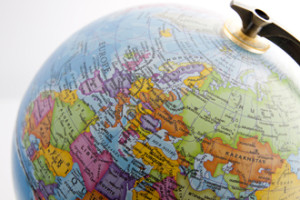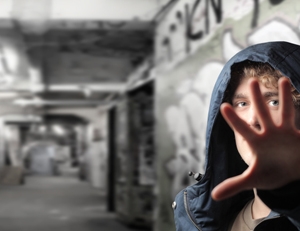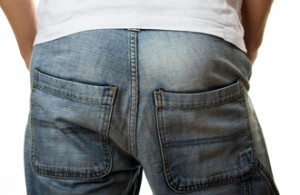It all starts with the hope of a better life. But for many migrants and refugees, all that remains in the end is the hustle to earn money.

Basically, it's just an old, schmaltzy pop song. But in this bar with its somewhat outdated, kitschy decor, Conny Froboes' song about the longing of the "Two Little Italians" suddenly sounds surprisingly contemporary. Radu* and Petre* don't notice this, however. For them, the song is just a foreign-sounding pub tune; their knowledge of German is far too poor to understand the lyrics.
If Petre doesn't understand something, he plays over the situation with a jovial "My friend!" and slaps the shoulder of his counterpart in a chummy manner. Sometimes Radu can also interpret something. He then talks in an adventurous mix of Romanian, German and English as well as sweeping gestures. It's not enough for in-depth conversations, but it's enough to negotiate the necessary things with the clients. On this evening, however, business looks rather poor. In the "Blue Boy Bar", a traditional Berlin hustler bar in the gay neighbourhood of Schöneberg, supply clearly exceeds demand. Petre has gone on the offensive, first flirting with a guest for a long time and then casually putting his arm around his neck.
Petre and Radu, both in their early twenties, came to Germany from a small Romanian town just under a year ago. They had invested what money they had in a train ticket, says Radu. But somehow everything turned out quite differently than they had imagined. The fact that he would now go procuring here with his best childhood friend was certainly not on the agenda. Meanwhile, Petre's new acquaintance is getting up close and personal and exploring the young man's body under the tight-fitting T-shirt with his hand. Radu watches his friend with amusement and at the same time lets his eyes wander restlessly around the pub. The chances of spending the night in a suitor's bed are dwindling. Radu will probably move on soon, hoping to have more success in the hustler pubs round the corner.
"Free zone" in the hustler projects
There are boys like Radu and Petre in every German metropolis. In Munich and Hamburg, their number is estimated at over 500 each, and nationwide there are probably several thousand. And what the fashionable clothes and well-groomed appearance of the boys you see in the Blue Boy Bar might not suggest is that the majority of them are homeless. If they can't sleep with mates or clients, their only option is the park bench - or hustler projects such as KISS in Frankfurt, Subway in Berlin or the BASIS project in Hamburg.

The Subway is just a few minutes' walk from the Blue Boy Bar. When the doors open at ten o'clock in the morning, the first young men are already at the door: overworked, exhausted and sometimes frozen through. The Subway offers eight beds where the boys can get a good night's sleep. Others come here during the day to shower, eat something warm, talk to others, play table tennis or do their laundry.
Helmut Wanner calls this a "free zone". For most of them, it's the only place where they don't have to feel harassed, marginalised or controlled. A few years ago, it was mostly Kosovo Albanians who came to Germany in search of a better, different life and ended up working the streets. Currently, Romanians and Bulgarians make up around 90 per cent of the men who use the help and counselling services, reports project employee Stefan Schröder. Saskia Reichenecker from Café Strichpunkt in Stuttgart, which pursues a similar concept to Subway, is currently encountering an increasing number of men from North African and Arab countries during her street work missions in the scene. Many of them are refugees and are involved in lengthy asylum procedures. Others have already had their applications rejected and are now living here illegally. Because they are unable to work legally, many of them often have no other option but to turn to crime and the drug scene or work as prostitutes.

As not only homosexuality but also prostitution is forbidden in Arab-Muslim countries, access to these men is particularly difficult for the social workers at Café Strich-Punkt. They don't even dare tell their best friends how they keep their heads above water. They share this fate with the boys and men from Roma families, in whose culture any form of gayness is taboo or even non-existent. They all come to Western Europe in the hope of a life that can only be better than the one they are leaving behind. But this dream is usually quickly shattered. The hoped-for jobs in construction or as cleaners are either not available or only for a pittance. Sometimes, sex work is the last chance to get by. The prices for these sex services have continued to fall in recent years due to the high supply. A vicious circle.
Life on the streets often leaves its mark
Only very few make the leap into a middle-class life with a proper job. While escorts generally pursue sex work with personal responsibility and a self-confident gay identity, these men offer their services out of sheer necessity. Some see themselves as heterosexual and may even have a wife and child. Others have not yet had the chance to realise their true sexual desires and needs free from coercion and need.
Life on the streets is not without consequences. For many of the men who end up in this dead-end street, which is almost impossible for them to escape, the permanent disruption, disgust and resulting self-hatred lead to gambling and drug addiction, alcoholism, auto-aggressive behaviour and other mental disorders. Life on the streets - and without health insurance - also has health consequences. Projects such as Subway, not least with the help of language mediators from the men's countries of origin, try to build trust and offer counselling and help in emergency situations. This also includes education about sexually transmitted diseases and safer sex. Sometimes not even basic knowledge is required, explains Wanner.

"The fact that Romanians and Bulgarians have been able to move freely throughout Europe since the beginning of the year at least offers a way out: prostitution is no longer necessarily the only way to earn money, we can also place them in legal work," says Saskia Reichenecker. At least in theory. In reality, as Helmut Wanner knows from experience, the labour market offers virtually no low-threshold job opportunities for these men, who generally have no vocational training and are often illiterate.
*Names changed










